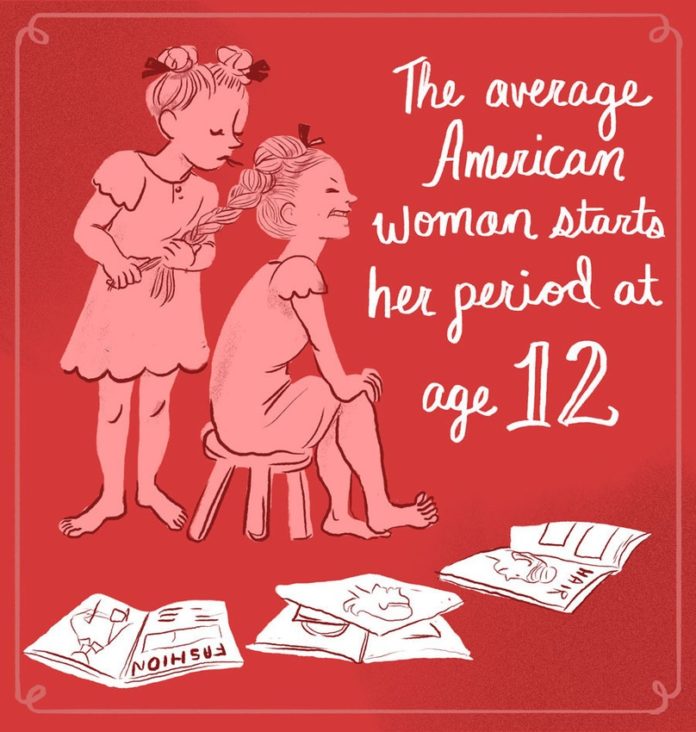15 menstruation facts you should definitely know

We give periods many names like “Aunt Flo,” “time of the month,” “crimson wave” or a number of other weird euphemisms that only serve to mystify and hide the perfectly natural process that women go through every month. Understanding menstruation and female health is important for overall well-being.
Even ladies out there who feel totally in-tune with their bodies could use a little knowledge — and men could stand to learn a little something as well.
Facts about your period
-

Girls are hitting puberty at earlier ages than ever before, but the reason remains elusive. Studies point to increase in obesity, low birth weights and stress.
-

Your uterus doesn’t “build up” those extra hormones, eggs or tissue that would otherwise be discarded during your period. Some birth control methods out there can lighten or completely stop your period like IUDs or certain types of pills. In fact, taking birth control on a regular basis can decrease your risk of ovarian cancer by 50 percent.
-

On average, women lose between a few tablespoons to about a cup each month, depending on their flow — everyone is different.
-

Everyone is a little bit different. While most women count 28 days between periods, some can have long or short cycles. The same goes for their actual periods, too, which can last anywhere from two to seven days.
-

Women are born with between one and two million immature eggs (or follicles) in their ovaries. Obviously, most of these follicles die as women grow up, and only about 400 ever mature.
-

As long as exercise isn’t downright painful or causes you discomfort, you’re free to go that extra mile. You do you.
-

Irregular periods aren’t always cause for alarm. While they can sometimes be a symptom of serious conditions, they can also be caused by stress or extreme weight loss. It’s always smart to check with your doctor.
-

A lot of women are fed misconceptions about intrauterine devices — mostly due to old studies based on devices that are no longer on the market.
While using an IUD isn’t for everyone — they actually don’t cause infertility. Some brands of IUD cause lighter periods (and for some women, no period at all) due to the hormones in the device, and they can last anywhere between three to 10 years depending on which device you choose.
However, once removed, your body begins to regulate itself and normal fertility returns within the first year.
-

Don’t get us wrong — labor is way, way worse. But the worst menstrual cramps (the truly debilitating kind) have been compared to very early labor pain. It could just be some people’s pain threshold, but it’s not entirely unlikely.
-

Menstrual blood is actually no different from a cut on your knee or a nose bleed. One small difference is that there is some tissue as well since menstruation involved shedding the uterine lining after ovulation.
-

There has never been a documented shark attack caused by a woman menstruating in the ocean. It’s an urban legend.
-

It is less likely to get pregnant during your period since your ovulation period is several days away. However, it is absolutely possible for eggs to still be fertilized while you’re still menstruating.
-

Yep. Your libido can kick into overdrive during your period due to lower estrogen and progesterone hormone levels.
-

The evidence that women’s cycles sync up is dicey at best. The concept was introduced in the 1970s and the scientific community has been divided ever since.
-

Symptoms of TSS include a sudden onset of fever, chills, diarrhea, vomiting, muscle aches and rash. Some doctors say leaving in a super absorbent tampon for too long can be a breeding ground for bacteria that cause the disease, but others say it won’t increase your risk. But, you should still follow the box directions properly to avoid problems. Or there are other methods women use in lieu of tampons too like pads, Diva Cups or special underwear.
Have something to add to this story? Share it in the comments.
